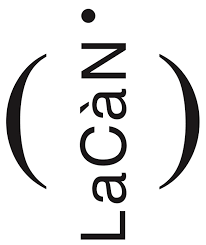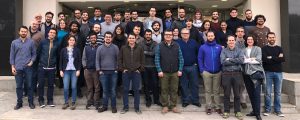 Yesterday, in the department of LaCàN (Laboratori de Càlcul Numèric) at Universitat Politècnica de Cataluya (UPC), a really interesting seminar took place. Pablo Saez, an Assistant Professor of Applied Mathematics, gave an overview of the group working in our department. The goal of the talk was to explain the different topics of research carried out in our department to the new PhD students arrived in September. Nevertheless, I have to admit that it has been really interesting even for a PhD student like me (with less time left to finish the thesis) and useful to update my knowledge as the compositions of the different groups and overall the topics of research are always evolving. On the other hand, it was also an occasion to see a tangible evidence of what until now it looked to me just more than a feeling, namely how much our group has grown in the recent years. When I started my PhD, on September 2016, I remember the PhD students’ office.. it was just one.. now they are three! Today LaCàN department counts 15 full-time faculty (4 full-prof, 7 associated, 4 assistant professors), 9 Post-doc researchers and 33 PhD students. All this group is spread over different projects based on various topics. A central theme in all activities of the group is pushing the state of the art in the mathematical modelling of complex phenomena using partial differential equations and their numerical approximation with novel computational methods. The interdisciplinary research is organised into three research programs with multiple cross-interactions.
Yesterday, in the department of LaCàN (Laboratori de Càlcul Numèric) at Universitat Politècnica de Cataluya (UPC), a really interesting seminar took place. Pablo Saez, an Assistant Professor of Applied Mathematics, gave an overview of the group working in our department. The goal of the talk was to explain the different topics of research carried out in our department to the new PhD students arrived in September. Nevertheless, I have to admit that it has been really interesting even for a PhD student like me (with less time left to finish the thesis) and useful to update my knowledge as the compositions of the different groups and overall the topics of research are always evolving. On the other hand, it was also an occasion to see a tangible evidence of what until now it looked to me just more than a feeling, namely how much our group has grown in the recent years. When I started my PhD, on September 2016, I remember the PhD students’ office.. it was just one.. now they are three! Today LaCàN department counts 15 full-time faculty (4 full-prof, 7 associated, 4 assistant professors), 9 Post-doc researchers and 33 PhD students. All this group is spread over different projects based on various topics. A central theme in all activities of the group is pushing the state of the art in the mathematical modelling of complex phenomena using partial differential equations and their numerical approximation with novel computational methods. The interdisciplinary research is organised into three research programs with multiple cross-interactions.
-
- Computational methods and tools coordinated by Pedro Diez:
-
-
- Automatic and adaptative meshing with error assessment (PI: Josep Serrate)
- CFD with industrial codes for engineering applications (PI: Adeline de Montlaur)
- Credible high-fidelity data-driven models (PI: Antonio Huerta)
-
-
- Cell and tissue mechanobiology coordinated by Marino Arroyo:
-
-
- Cell and tissue mechanics in embryogenesis (PI: Jose Muñoz)
- Mechanics of soft and living interfaces (PI: Marino Arroyo)
- Multi-scale and multi-physics modelling in mechanobiology (PI: Pablo Saez)
-
-
- Natural and engineered material and structures coordinated by Irene Arias
-
-
- Computational acoustics and damage mechanics (PI: Antonio Rodriguez)
- Computational Geosciences (PI: Sergio Zlotnik)
- Mechanics of electroactive materials (PI: Irene Arias)
-
Most of the students working on these topics may do it using founds coming from the European Union (e.g. MSCA-ITN, ERC) and I’m grateful for that. Thanks to these founds we are not only able to do research in our interest’s topic, but also working in the every day routine with people in our same situation doing research on different fields. This closeness usually flows into daily exchange of opinions, collaborations, all activities which let us learn a bit about everything and build our own network which is not limited to our project but extended also to all the group research.

